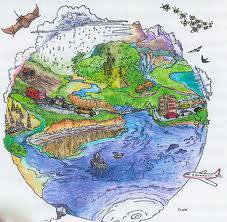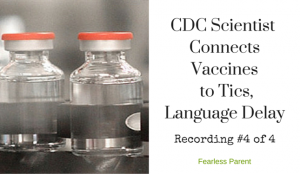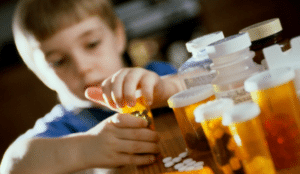I grew up believing America had the best medical system in the world. I didn’t just believe it. I knew it. We dominate in technology. We have the smartest scientists doing the most state-of-the-art research at the world’s top universities and think tanks. We are a global leader in providing humanitarian aid to impoverished nations.
I also grew up believing a Snickers bar and a Diet Coke made the perfect lunch.
Then, in 2008 when I was 41 years old, my son was diagnosed with Autism. His diagnosis catapulted me into learning everything I could about how to best navigate our health system and insurance providers. It also motivated me to do as much research as possible, to memorize medical terminology I once was unable to pronounce, and to educate myself as much as possible. I learned, and am learning, so much. I now understand that good nutrition and healthy gut flora are two essential parts of the human body’s immune system (spoiler alert: Snickers and Diet Coke don’t help beneficial bacteria in your body thrive).
My son’s diagnosis was also a slap in the face. I was a good girl. I followed the rules. I did everything the doctors told me to do. But instead of having a son who was thriving, I had a son who was very, very sick.
After presenting on a Nurture Parenting panel with Christine Gross-Loh this past spring, I’ve been thinking about how ethnocentric our health practices are in the United States. Christine’s book has led me to think about the habits we follow raising our children in the United States.
Children in America are not the healthiest in the world. In fact, our children are sick and getting sicker. The infant death rates in the U.S. are among the highest in the industrialized world. We know that we have a big problem with obesity in this country. Childhood obesity is worrisome enough that Michelle Obama chose it for her platform as First Lady. Food, in our country, is not so much for sustenance and energy as it is for addiction and entertainment. Through a combination of addictive food additives and omnipresent food advertising campaigns in the United States, we are allowing ourselves to be sold sickness.
And we are indeed sick. Americans could learn a lot about the way things are done in other countries. It frustrates me tremendously that some of the additives, preservatives and food coloring banned in other countries due to health concerns have been allowed to stay on the shelves in the United States.
This article, making its way across the airwaves right now gives a great list of things to avoid for better health. I can feel so overwhelmed trying to make healthy food choices for my family. This short list is a great starting point. Make it a point to reduce and work towards removing these items from your grocery cart and you will be making a great step towards healthier choices. You may see some immediately beneficial shifts in a child’s behavior or sleep. Dietary changes remains one of the most significant and simplest interventions we have done for my son with autism. But you don’t have to have autism to benefit.
All of us feel better when we are eating better.
England’s Prime Minister is beginning to cave to corporate pressure to allow GMO crops. It appears that an industry event this spring with a heavy emphasis on losing ground in the scientific race, coupled with a moral responsibility to feed the world’s children is replacing the EU’s previous stance that there was no long term safety research on GMO food. I saw that the question was put to Cameron, whether he would feed his own children GMO food, but I didn’t see an answer.
As an American mom, it has worried me that so many other developed nations were not jumping on the GMO bandwagon.
This brings me to one more point about the different health choices that are made around the world and what we might learn from practices in other countries.
Japan recently announced that it would be discontinuing the HPV vaccine due to increasing numbers of debilitating side effects. Japan is opting to downgrade its use of the HPV vaccine at the same time the U.S. is pushing hard for universal acceptance of this vaccine, despite some very vocal concern over U.S. HPV vaccine adverse events. I think it would be wise to watch the health outcomes in Japan as they defer this vaccine’s use. Will they see an increase in cervical cancer?
I worry when I see images of starving children in developing countries receiving multiple vaccinations. I wonder how their bodies can process the vaccine components. Would efforts to give these children easier access to clean water and healthy food and better sanitation be more important to their lasting health?
Jennifer Margulis, PhD notes the enormous differences in the American vaccine schedule compared to other developed nations in her book The Business of Baby. These other countries–including Norway, Iceland, France, England, and Japan–have lower infant mortality rates and healthier children. We vaccinate more intensely than any other industrialized nation. But is our aggressive vaccine schedule leading to better health? Are children healthier in the United States than they are in other countries?
We know they are not.
This begs the question that Margulis tackles in her book: Are we allowing the pharmaceutical industry in the U.S. to mold our health care practices in an effort towards profit in the same way we have allowed the food industry to manipulate our taste buds from food as a necessity, to food as enjoyment?
These days I think a hearty salad with goat cheese and walnuts and a big glass of seltzer make a perfect lunch.
I worry when I see images of starving children receiving multiple vaccinations. I wonder if their bodies can process the vaccine components and think about how efforts and our money would be better spent on access to clean water, healthy food, and better sanitation.
I’m still so proud of the generosity of the American spirit, our incredible higher education, and the way we embrace innovation. At the same time, I’ve come to realize we can learn as much from the way other countries do things as they have learned from us.













June 24, 2013 2:22 pm
Comments 0